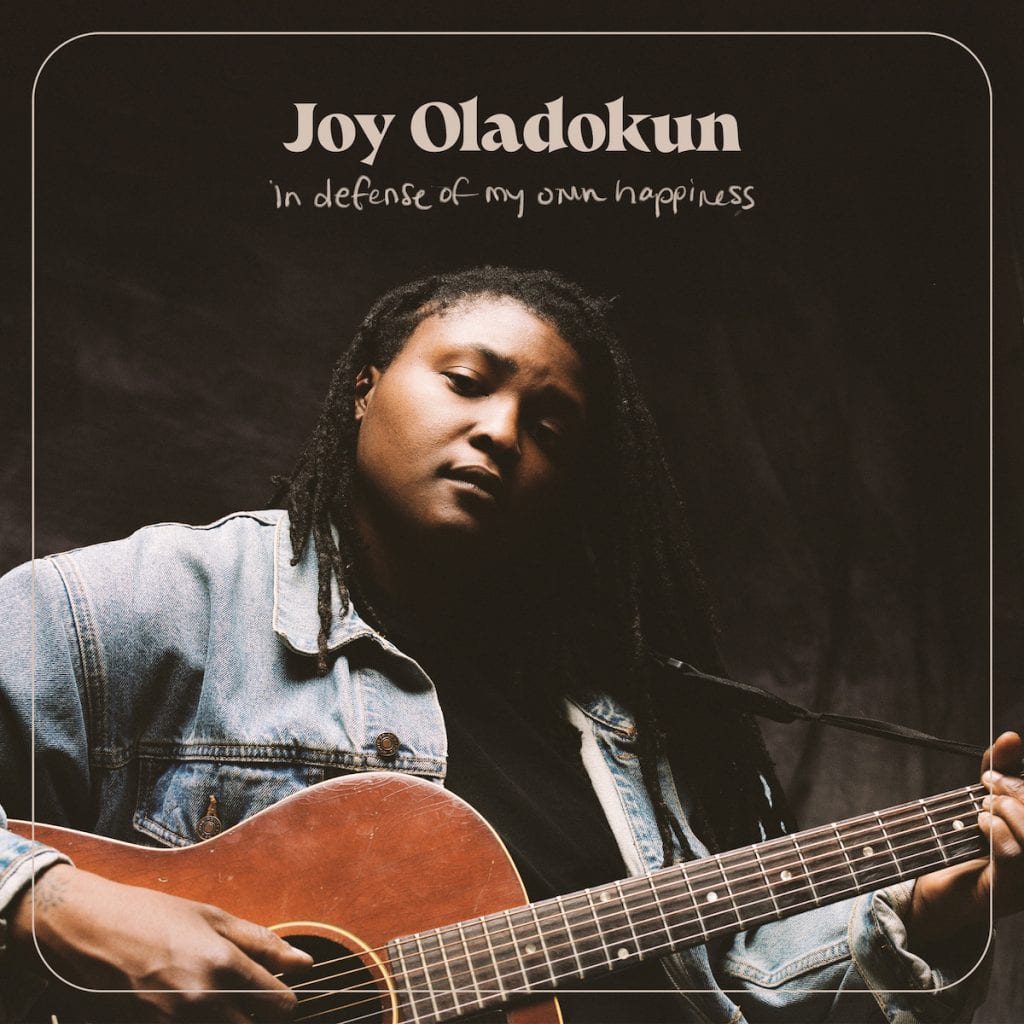Joy Oladokun Maps Out Personal History and Universal Truths on Breakout Record

Joy Oladokun’s new album, in defense of my own happiness, was forged during a year of isolation and division. But despite that context — or perhaps because of it — the singer finds ways to wrap her arms around the world with this collection of songs.
Oladokun saw her star begin to rise in the mainstream consciousness at precisely the point it should have been lowest: during the onset of the COVID-19 pandemic. Tours and shows were canceled, budgets everywhere tightened, and music started to be seen as a non-essential luxury. But the groundwork had already been laid. In late 2019, one of her songs appeared on the soundtrack of The L Word; the next year, she snagged two more TV soundtrack spots on Catfish and Grey’s Anatomy. In early 2021, her song “breathe again” was included on an episode of This is Us, and she was subsequently invited to perform it on The Tonight Show Starring Jimmy Fallon and NBC’s TODAY.
Those songs, plus several new ones, find their home on in defense of my own happiness, an expansion of a release of the same title Oladokun released in 2020. The collection traverses her dynamic personal history: She writes and sings about her experience as a queer Black woman born to Nigerian parents and raised in an Arizona farming town.
Tracks like “sunday” touch on both the guilt and joy of coming out, especially for those who — like Oladokun — have a background in a religious community that they fear may no longer accept them. Like every song she writes, “Sunday” is understated and all-inclusive: It easily makes room for all the nuances, even seemingly contradictory ones, that are involved in going through any major life change.
One of the album’s three collaborations, “Bigger Man,” is the product of a co-write and duet with Maren Morris. Once again, the song finds Oladokun crossing over into mainstream appeal, but she doesn’t lose any of her knack for truth-telling along the way. “Bigger Man” seamlessly describes a particular and very specific emotion: The frustration of always being the one who takes the high road, even when confronted with a person who’s used to getting his way simply by being the loudest one in the room.
The song is a little confrontational — “Oh, you think you’re tired? Try it longer than three minutes,” she sings in the bridge, addressing listeners who might be tempted to press skip on the track to get away from the song’s feelings of frustration — but it never loses its tenderness.
Oladokun’s ability to shine a light on the truth is remarkable, but perhaps even more so is her ability to do so with kindness. In the album’s penultimate track, “taking the heat,” she gently probes at the idea of “strength” and “strong people,” asking listeners to question whether they’re taking care of those around them or letting others shoulder more than their share of the burden. “Does anybody wonder when the legends die young / If there’s anything that we could’ve done / to stop a strong one from taking the heat?” she asks in the chorus.
The question, posed without an ounce of preachiness, comes up again and again throughout in defense of my own happiness: How do we take care of ourselves, and take care of each other? Oladokun’s lyrical messages and reminders are not necessarily new, but they are well-told, and delivered with truth and kindness in equal measure. In 2021, nothing could be more essential.




